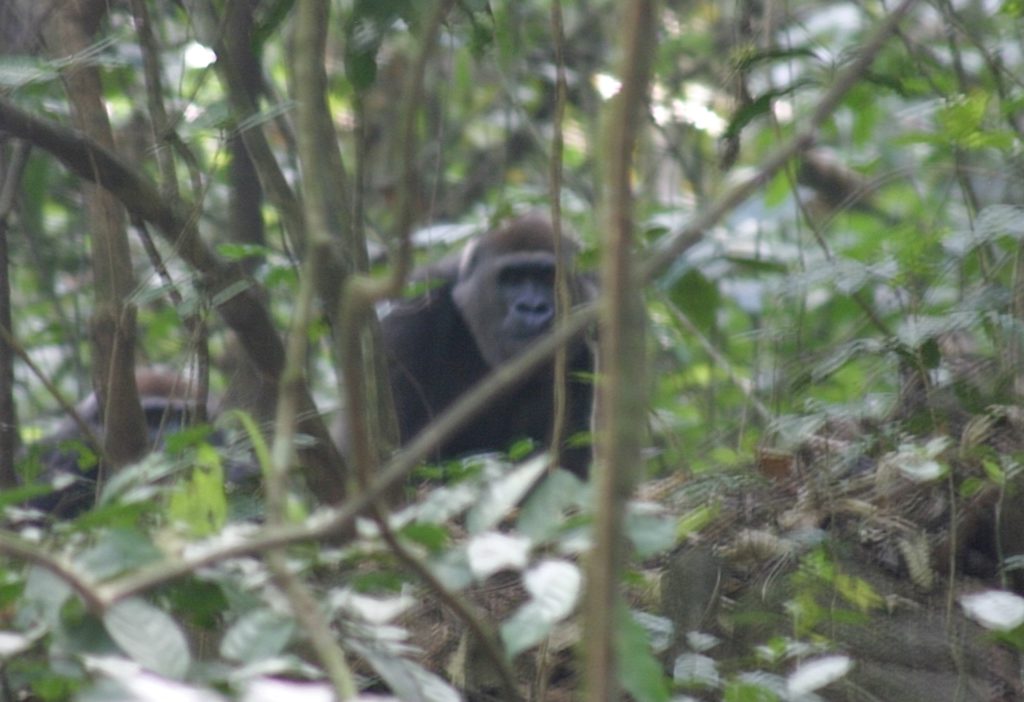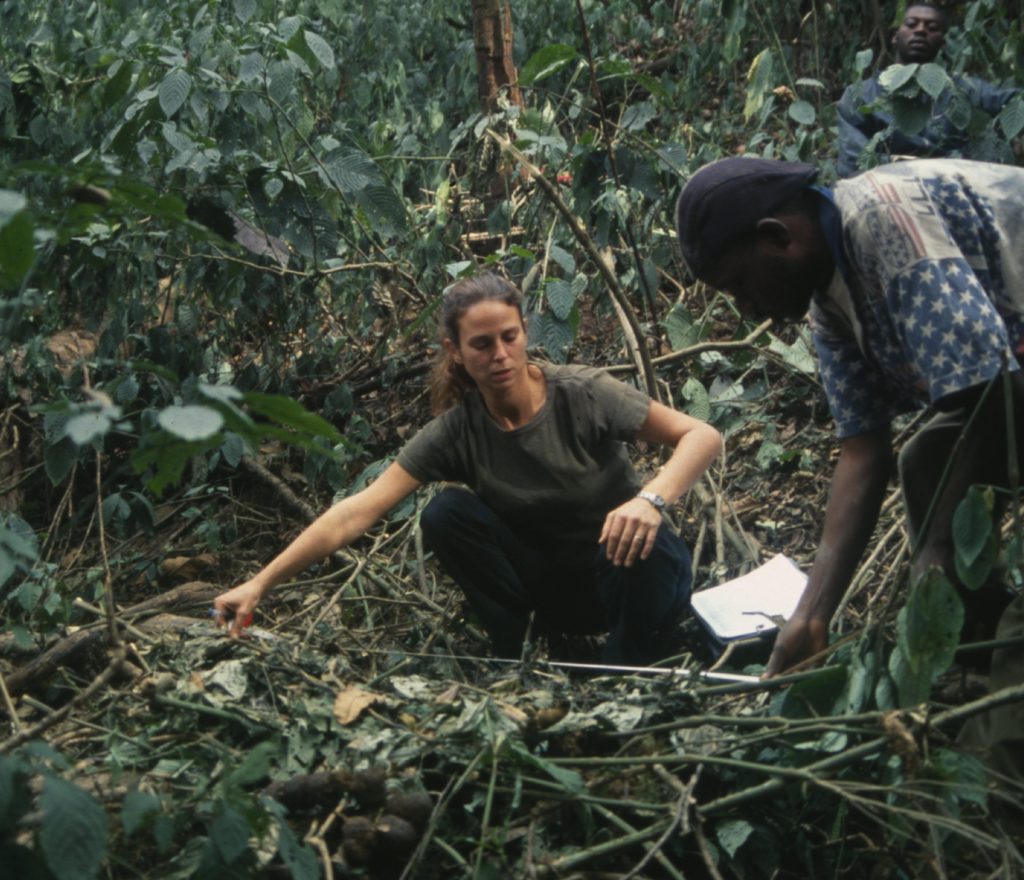Globally, great ape populations and their habitats have drastically declined in recent history. New analysis published today reveals that if the pressures on their habitat remain unchecked, Africa's great apes could lose between 85 and 94 per cent of their range by the year 2050. As their range shrinks, their chances for survival also diminish.
In this Q&A, Jacqueline Sunderland-Groves, a great ape expert in UBC's faculty of forestry who contributed to the study, explains what can be done to ensure the long-term survival of gorillas, chimpanzees and other great apes.
Why is range critical to the existence of great apes?
Range is the geographic area naturally occupied by a species. Across their current range, African great ape populations are distributed within 21 countries. Unfortunately, the majority of their range occurs outside of recognized protected areas and as land-use, climate and human population density increase, great apes will lose huge areas of their habitat.
For example, climate change will result in some lowland habitats becoming warmer and drier. Lowland vegetation will extend upwards to nearby mountains. All animals reliant on those habitats will have to shift their range or face local extinction.
What were the key findings of the study?
This study is the first to combine climate, land-use and human population changes in an ensemble forecasting approach to predict specific distributions of African apes by 2050. In the best-case scenario, we can expect a range decline of 85 per cent, 50 per cent of which is outside of protected areas. And worst-case we would see a range decline of 94 per cent, of which 61 per cent is outside of protected areas. Potentially, and if great ape populations do shift their range in response to changing landscapes, we can expect some significant range gains, but there is no guarantee that they will.
Most importantly, this study shows that we have time to mitigate these predictions. Some climate change-related range loss can be avoided if appropriate management measures are taken, together with increasing the protected area network within great ape range states based on suitable habitats for them.
How did you get involved in this study?
I spent a decade researching the critically endangered Cross River gorillas - which straddle the Cameroon-Nigeria border - to understand their population size, distribution and ecology, and my data are incorporated into this study. Cross River gorillas number as few as 250 to 300 individuals and only an estimated nine per cent are found within protected areas. Within this study the predictions for their future survival are extremely bleak with climate and human density set to increase, and all primary habitat lost.
You are also part of an orangutan monitoring project in Indonesia. Are you seeing similar problems in that region?
Wild orangutan populations have suffered huge declines and priority has to focus on conserving all remaining populations and habitats. The orangutan reintroduction monitoring project I work on aims to reintroduce displaced and rehabilitated orangutans to create new, viable populations to help bolster conservation of the species in the wild.
What can governments and conservationists do to protect our great apes?
We all have a moral and ethical responsibility to ensure that great apes are protected long into the future. They are our closest living relatives and losing our nearest kin would be unthinkable. Sadly, and to many, unknowingly we all benefit from their habitat loss. Resources we use on a daily basis are extracted from their natural habitat through logging, mining and the establishment of large-scale agricultural plantations, so this is really a global issue which requires a global response.
Great apes are charismatic "umbrella species" — protecting them protects a wide range of other wild fauna and flora. Healthy forests equate to healthy people and societies and that must be sufficient justification for ensuring we do not end up living on a planet without apes.
Interview language(s): English








